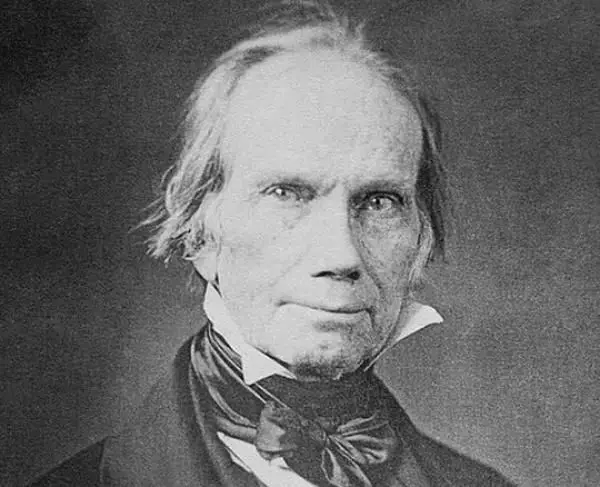What Did Henry Clay Do For The War Of 1812?
The War of 1812 was a conflict fought between the United States and Great Britain from 1812 to 1815. The war broke out over grievances related to Britain’s violations of American maritime rights and impressment of American sailors. However, there were also underlying tensions over western settlement and Native American relations. Though the war ended in a stalemate, it established a sense of national pride and identity for the young American republic.
In the years leading up to the war, Britain was embroiled in a major war with France and was blockading European ports under Napoleon’s control. As a result, they restricted American ship access. Additionally, the British Royal Navy was seizing American merchant ships and forced captured American sailors into service in the Royal Navy. This practice of impressment enraged Americans. Meanwhile, some Americans called for the annexation of Canada.
In June 1812, President James Madison signed a declaration of war against Britain. However, the United States was ill-prepared with an undersized army and navy. The U.S. strategy focused on invasion of Canada but also defending against coastal raids. The United States saw some key victories at sea, though failed to achieve its aims in Canada. The war took a toll on both nations’ economies and tested public support. By 1814, both sides were open to peace negotiations.
Henry Clay’s Early Political Career
Henry Clay first became politically active when he was elected to the Kentucky House of Representatives in 1803. He served several terms in the state legislature and gained a reputation as an opponent of debt relief laws which were seen as harmful to creditors like himself.1
In 1810, Clay was elected as a Democratic-Republican to the United States House of Representatives. At only 33 years old, Clay did not meet the Constitutional age requirement to serve in Congress, but no one raised an objection during his campaign or the first session he served.2 As a member of the House, Clay advocated for nationalist policies such as the rechartering of the Bank of the United States. He also pushed for a more aggressive stance against British violations of American neutrality leading up to the War of 1812.
Clay’s Role in Declaring War
As Speaker of the House of Representatives, Henry Clay played a pivotal role in leading the United States into the War of 1812. Clay was part of a faction in Congress known as the “War Hawks” who strongly advocated for war against Britain in response to ongoing disputes over maritime rights, trade restrictions, and British support for Native Americans fighting American expansion.
In his position as Speaker, Clay forcefully argued that war was necessary to resolve these issues and defend America’s honor and sovereignty. He gave impassioned speeches denouncing Britain’s actions and calling on Congress to declare war. Clay utilized his power and influence to build support for war among members of Congress.
According to the Senate Historical Office, Clay’s “fiery rhetoric united the War Hawks behind his call for conflict” [1]. He effectively framed the war as an opportunity for the young nation to firmly establish itself on the world stage. With Clay leading the charge, Congress ultimately passed a declaration of war against Britain in June 1812.
As Speaker, Clay worked to rapidly appropriate funds for the war effort and strengthen the nation’s defenses. His forceful leadership was instrumental in driving the United States into a conflict that Clay fervently believed would defend the country’s maritime rights, open up British-controlled territory, and prove America’s strength.
Clay’s Motivations for War
Henry Clay was a prominent American politician known as a “War Hawk” who strongly advocated for the War of 1812 against Britain. Clay saw the war as an opportunity for the United States to gain land and expand its territory. In particular, Clay wanted to annex Canada, which was a British colony at the time.
Clay believed that invading Canada would pressure Britain into making concessions over ongoing disputes with the U.S., including British interference with American shipping and the impressment of American sailors. As Clay reasoned, “because Canada was so vulnerable, an attack on the British colony would force Britain to make concessions on both issues” (U.S. National Park Service).
Beyond Canada, Clay more broadly envisioned the War of 1812 as a chance for the young nation to expand westward. In an 1811 speech, Clay declared that he wanted “not only the entire conquest of Canada, but also the expulsion of England from the American continent and the annexation of the Floridas” (referenced in McCullough, John Adams).

With expansionist ambitions, Clay pushed hard for Congress to declare war against Britain in June 1812. As a leading War Hawk, Clay sought to take advantage of Britain’s entanglement in the Napoleonic Wars to weaken British hold on North America.
Clay’s Influence in Congress
Henry Clay was instrumental in getting Congress to declare war against Britain in 1812. As Speaker of the House, Clay led a group of representatives known as the “War Hawks” who strongly pushed for war [1]. Clay argued that war was necessary to defend American rights and honor against British offenses on the high seas and interference with U.S. trade [2]. His fiery oratory helped turn the tide in Congress in favor of declaring war.
Clay saw war with Britain as an opportunity to annex Canada, which he believed would be an easy conquest. By attacking the vulnerable British colony, Clay reasoned the U.S. could force Britain to make concessions on issues like impressment and freedom of the seas [3]. With Clay leading the charge, Congress declared war in June 1812, ushering the nation into the War of 1812.
Clay’s Continued Support During the War
As the War of 1812 raged on, Clay continued to staunchly support the war effort. He urged Congress to allocate more military spending and adopt more confrontational policies toward Britain. For example, Clay advocated for Congress to raise money for the war by levying new taxes and tariffs. He argued that the war was necessary to defend America’s honor and that no expense should be spared in waging it. According to one source, Clay “demanded a military confrontation with Great Britain and a war to wipe out the United States’ shame from its constant retreat when confronting the former mother country” (https://www.battlefields.org/learn/biographies/henry-clay). His fiery rhetoric helped persuade Congress to adopt a hardline war policy.
Clay also pushed to expand the military. He advocated for the recruitment of more soldiers and sailors to fight Britain. As the House Speaker, Clay utilized his leadership position to enact measures to strengthen America’s armed forces and continue prosecuting the war. His forceful advocacy was crucial in sustaining the political will for the conflict even as dissent began to rise.
In 1814, Clay was appointed to accompany John Quincy Adams and others to Europe to negotiate a peace treaty with Britain. However, President James Madison recalled the delegation back to America after learning Britain would not meet with them. Though the mission failed, Clay remained firmly committed to achieving an honorable peace that would not relinquish America’s maritime rights. His stalwart support helped the Madison administration maintain its wartime policies.
Clay Negotiates Peace Treaty
In 1814, Henry Clay was appointed by President James Madison as one of the American delegates to negotiate peace with Great Britain and end the War of 1812. The negotiations took place in Ghent, Belgium and resulted in the Treaty of Ghent, which was signed on December 24, 1814.
As part of the American delegation, Clay played an instrumental role in the treaty negotiations. He advocated strongly for ending the war on favorable terms for the United States. Though the Treaty of Ghent did not resolve the issues that led to the war, it did succeed in restoring the pre-war status quo between the U.S. and Great Britain. The treaty called for cessation of hostilities, the exchange of lands and naval vessels captured during the war, and the establishment of a commission to settle U.S. and British boundary disputes [1].
By negotiating this peace treaty, Clay helped bring an end to a costly war that had resulted in a stalemate between the two nations. The Treaty of Ghent formally ended over two years of fighting between American and British forces. Though it did not resolve the tensions that led to the war, the treaty served as an important diplomatic accomplishment for the United States and demonstrated Clay’s early prowess as a statesman and negotiator.
The Lasting Impact of Clay’s Role
Henry Clay’s support for the War of 1812 and his key role in both declaring war and negotiating peace had significant long-term impacts on the growth and expansion of the United States. One of the most notable outcomes was that the war boosted America’s international standing as an independent nation not to be trifled with. Defeating the British, who at the time were the world’s preeminent military power, gained respect for the young United States on the global stage. This victory gave the U.S. newfound confidence in dealings with European powers going forward.
The war also enabled the United States to break free of British influence in North America once and for all. With the British threat diminished, American settlers were able to expand westward into lands previously contested with Native American tribes backed by the British. As Clay had hoped, victory opened up vast new western territories like the Old Northwest to American settlers. This accelerated the push across the continent that fulfilled the doctrine of Manifest Destiny in the coming decades.
So in many ways, Clay’s stalwart support for the War of 1812 and demand for favorable peace terms paved the way for dramatic growth and development of the American nation in the 19th century. His influence as a congressman and diplomat shaped the country’s borders and global standing during his time and for many generations after. (Source: https://www.battlefields.org/learn/biographies/henry-clay)
Criticisms of Clay’s Role
Some contemporaries viewed Clay’s aggressive push for war as reckless and ill-advised. According to an article on Henry Clay War Hawk cigars, “War Hawks were known for their aggressive stance on political issues and often favored war over diplomacy” (source). Many saw declaring war against Britain as an unnecessary risk that could damage the young nation’s still-fragile economy and global standing.
In particular, New England politicians strongly opposed the war, fearing it would disrupt maritime trade which their region relied upon heavily. They saw Clay as short-sighted in pursuing a conflict with one of America’s most important trading partners. Some historians argue Clay let his nationalistic ambitions cloud his judgment in beating the drums of war.
There was also criticism that personal political motivations drove Clay’s support for war more than legitimate policy grievances with Britain. As a leader of the War Hawk faction, Clay likely believed a war would boost his popularity and power. However, recklessly pursuing war for self-interest at the expense of the nation’s well-being earned Clay the scorn of many of his contemporaries.
Conclusion
In summary, Henry Clay played a pivotal role in the events leading up to and during the War of 1812. As a prominent leader of the War Hawks in Congress, Clay was a vocal advocate for military confrontation with Britain. He pushed for war to resolve ongoing disputes over maritime rights, impressment of American sailors, and British support for Native Americans fighting American expansion. Clay used his influence as Speaker of the House to drum up support for declaring war in 1812. Once the war began, Clay continued lobbying for supplies and troop allocations to prosecute the war aggressively. His impassioned speeches maintained congressional backing for the war effort. Clay also played a key role during negotiations to end the war, securing favorable terms in the Treaty of Ghent in 1814. Although the Treaty did not resolve the issues that initially caused the war, Clay emerged as an influential political figure. His pivotal role demonstrated Clay’s powers of persuasion and ability to drive the national agenda during a formative period in American history.


